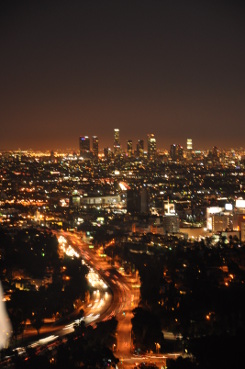

What are the grounds for suspension or revocation under California's Alcoholic Beverage Control law?
The attorneys of Theta Law Firm are familiar with California's laws on alcoholic beverage control and can help you defend your license in the event of a sale to a minor or other incident relating to your license.
California Business and Professions Code section 24200 provides the grounds for suspension or revocation under the Act:
-
The following are the grounds that constitute a basis for the suspension or revocation of licenses:
-
(a) When the continuance of a license would be contrary to public welfare or morals. However, proceedings under this
subdivision are not a limitation upon the department's authority to proceed under Section 22 of Article XX of the
California Constitution.
(b) Except as limited by Chapter 12 (commencing with Section 25000), the violation or the causing or permitting of a violation by a licensee of this division, any rules of the board adopted pursuant to Part 14 (commencing with Section 32001) of Division 2 of the Revenue and Taxation Code, any rules of the department adopted pursuant to the provisions of this division, or any other penal provisions of law of this state prohibiting or regulating the sale, exposing for sale, use, possession, giving away, adulteration, dilution, misbranding, or mislabeling of alcoholic beverages or intoxicating liquors.
(c) The misrepresentation of a material fact by an applicant in obtaining a license.
(d) The plea, verdict, or judgment of guilty, or the plea of nolo contendere to any public offense involving moral turpitude or under any federal law prohibiting or regulating the sale, exposing for sale, use, possession, or giving away of alcoholic beverages or intoxicating liquors or prohibiting the refilling or reuse of distilled spirits containers charged against the licensee.
(e) Failure to take reasonable steps to correct objectionable conditions on the licensed premises, including the immediately adjacent area that is owned, leased, or rented by the licensee, that constitute a nuisance, within a reasonable time after receipt of notice to make those corrections from the department, under Section 373a of the Penal Code. For the purpose of this subdivision only, "property or premises" as used in Section 373a of the Penal Code includes the area immediately adjacent to the licensed premises that is owned, leased, or rented by the licensee.
(f) Failure to take reasonable steps to correct objectionable conditions that occur during business hours on any public sidewalk abutting a licensed premises and constitute a nuisance, within a reasonable time after receipt of notice to correct those conditions from the department. This subdivision shall apply to a licensee only upon written notice to the licensee from the department. The department shall issue this written notice upon its own determination, or upon a request from the local law enforcement agency in whose jurisdiction the premises are located, that is supported by substantial evidence that persistent objectionable conditions are occurring on the public sidewalk abutting the licensed premises. For purposes of this subdivision:
-
(1) "Any public sidewalk abutting a licensed premises" means the publicly owned, pedestrian-traveled way,
not more than 20 feet from the premises, that is located between a licensed premises, including any immediately adjacent
area that is owned, leased, or rented by the licensee, and a public street.
(2) "Objectionable conditions that constitute a nuisance" means disturbance of the peace, public drunkenness, drinking in public, harassment of passersby, gambling, prostitution, loitering, public urination, lewd conduct, drug trafficking, or excessive loud noise.
(3) "Reasonable steps" means all of the following:
-
(A) Calling the local law enforcement agency. Timely calls to the local law enforcement agency that are
placed by the licensee, or his or her agents or employees, shall not be construed by the department as evidence of
objectionable conditions that constitute a nuisance.
(B) Requesting those persons engaging in activities causing objectionable conditions to cease those activities, unless the licensee, or his or her agents or employees, feel that their personal safety would be threatened in making that request.
(C) Making good faith efforts to remove items that facilitate loitering, such as furniture, except those structures approved or permitted by the local jurisdiction. The licensee shall not be liable for the removal of those items that facilitate loitering.
-
(a) If a retail licensee has knowingly permitted the illegal sale, or negotiations for the sales, of controlled
substances or dangerous drugs upon his or her licensed premises. Successive sales, or negotiations for sales, over any
continuous period of time shall be deemed evidence of permission. As used in this section, "controlled substances"
shall have the same meaning as is given that term in Article 1 (commencing with Section 11000) of Chapter 1 of Division 10
of the Health and Safety Code, and "dangerous drugs" shall have the same meaning as is given that term in Article 2
(commencing with Section 4015) of Chapter 9 of Division 2 of this code.
(b) If the licensee has employed or permitted any persons to solicit or encourage others, directly or indirectly, to buy them drinks in the licensed premises under any commission, percentage, salary, or other profit-sharing plan, scheme, or conspiracy.
California Business and Professions Code section 25658 provides:
-
(a) Except as otherwise provided in subdivision (c), every person who sells, furnishes, gives, or causes to be sold,
furnished, or given away any alcoholic beverage to any person under 21 years of age is guilty of a misdemeanor.
(b) Except as provided in Section 25667, any person under 21 years of age who purchases any alcoholic beverage, or any person under 21 years of age who consumes any alcoholic beverage in any on- sale premises, is guilty of a misdemeanor.
(c) Any person who violates subdivision (a) by purchasing any alcoholic beverage for, or furnishing, giving, or giving away any alcoholic beverage to, a person under 21 years of age, and the person under 21 years of age thereafter consumes the alcohol and thereby proximately causes great bodily injury or death to himself, herself, or any other person, is guilty of a misdemeanor.
(d) Any on-sale licensee who knowingly permits a person under 21 years of age to consume any alcoholic beverage in the on-sale premises, whether or not the licensee has knowledge that the person is under 21 years of age, is guilty of a misdemeanor.
(e)
-
(1) Except as otherwise provided in paragraph (2) or (3), or Section 25667, any person who violates this section
shall be punished by a fine of two hundred fifty dollars ($250), no part of which shall be suspended, or the person shall
be required to perform not less than 24 hours or more than 32 hours of community service during hours when the person is
not employed and is not attending school, or a combination of a fine and community service as determined by the court. A
second or subsequent violation of subdivision (b), where prosecution of the previous violation was not barred pursuant to
Section 25667, shall be punished by a fine of not more than five hundred dollars ($500), or the person shall be required
to perform not less than 36 hours or more than 48 hours of community service during hours when the person is not employed
and is not attending school, or a combination of a fine and community service as determined by the court. It is the intent
of the Legislature that the community service requirements prescribed in this section require service at an alcohol or
drug treatment program or facility or at a county coroner's office, if available, in the area where the violation
occurred or where the person resides.
(2) Except as provided in paragraph (3), any person who violates subdivision (a) by furnishing an alcoholic beverage, or causing an alcoholic beverage to be furnished, to a minor shall be punished by a fine of one thousand dollars ($1,000), no part of which shall be suspended, and the person shall be required to perform not less than 24 hours of community service during hours when the person is not employed and is not attending school.
(3) Any person who violates subdivision (c) shall be punished by imprisonment in a county jail for a minimum term of six months not to exceed one year, by a fine of one thousand dollars ($1,000), or by both imprisonment and fine.
(g) The penalties imposed by this section do not preclude prosecution or the imposition of penalties under any other provision of law, including, but not limited to, Section 272 of the Penal Code and Section 13202.5 of the Vehicle Code.
You can reach an attorney at Theta Law Firm by calling us or sending us an email at law@thetafirm.com. Theta Law Firm can represent clients all across the State of California, including in any of the following counties: Alameda | Alpine | Amador | Butte | Calaveras | Colusa | Contra Costa | Del Norte | El Dorado | Fresno | Glenn | Humboldt | Imperial | Inyo | Kern | Kings | Lake | Lassen | Los Angeles | Madera | Marin | Mariposa | Mendocino | Merced | Modoc | Mono | Monterey | Napa | Nevada | Orange | Placer | Plumas | Riverside | Sacramento | San Benito | San Bernardino | San Diego | San Francisco | San Joaquin | San Luis Obispo | San Mateo | Santa Barbara | Santa Clara | Santa Cruz | Shasta | Sierra | Siskiyou | Solano | Sonoma | Stanislaus | Sutter | Tehama | Trinity | Tulare | Tuolumne | Ventura | Yolo | Yuba
